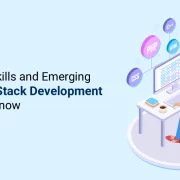
Tips for Effective Application Training Programs in IT Companies
Summary
Discover practical tips for designing and implementing successful application training programs in IT companies, focusing on engagement, effectiveness, and ROI.
Table of Contents:
- Introduction
- Why is Effective Application Training Important for IT Companies?
- Seven Tips for Creating Effective Application Training Programs
- Conclusion
Introduction
In today’s rapidly evolving tech landscape, staying ahead of the curve is not just an option but a necessity for IT companies. This is where robust IT training programs come into play. Whether you’re a seasoned IT professional or just starting, embracing continuous learning through effective application training can make all the difference.
Why is Effective Application Training Important for IT Companies?
Before diving into the nitty-gritty of crafting a stellar IT Company Training program, let’s first understand why it is paramount.
1. Skill Enhancement and Adaptability:
In the dynamic realm of Information Technology, adaptability is the key to survival. Regular application training equips employees with the latest skills, making them agile in responding to technological shifts and advancements.
2. Increased Productivity and Efficiency:
Well-structured IT Training Solutions empower employees to use applications to their full potential. This boosts their productivity and ensures that projects are executed efficiently, meeting deadlines with precision.
3. Reduced Downtime and Support Costs:
A workforce well-versed in their applications is less likely to encounter operational hiccups, minimizing downtime and reducing the need for constant IT support. There is a reduced need for supervision as well.
4. Enhanced Job Satisfaction and Retention:
Offering comprehensive IT Corporate Training programs signals to employees that their professional growth is a priority. This fosters a sense of loyalty and job satisfaction, leading to higher retention rates.
5. Competitive Edge in the Market:
An adept workforce is a valuable asset in the competitive IT industry. Effective application training sets your company apart by ensuring your team is equipped with the latest skills and knowledge.
Now that we’ve established the significance of application training, let’s delve into the tips for creating top-notch IT Training Programs.
Also Read: 5 Ways to Deliver Application Training and Improve Employee Efficiency
Seven Tips for Creating Effective Application Training Programs
1. Assess training needs
Assess your organization’s employee training needs: collect data, preferably a detailed profile of your employees, to provide effective training. This should include their background, learning preferences, and professional experience. this should guide you in choosing the content and delivery methods. Each employee is uniquely qualified: different employees hold different learning potentials and styles, which should be the guiding principle when choosing content and delivery methods. Training needs assessment becomes all the more vital for global corporations that need to offer localized training, taking into account diverse language and cultural backgrounds and norms.
2. Set realistic goals
Identifying long-term and short-term organizational goals in the context of application training is critical to channel it in the right direction. The application training goals should align with organizational goals, which, more often than not, are employee retention and development,
3. Customize Content to Suit Your Audience:
Tailoring the content of your application training to the specific needs and proficiency levels of your employees is paramount. This ensures they receive relevant information that can be immediately applied in their roles.
Example: If your IT company specializes in cybersecurity, the training content should focus on the latest threats, protection strategies, and industry best practices.
4. Embrace a Blended Learning Approach:
Incorporating a mix of learning methods, such as instructor-led sessions, e-learning modules, hands-on workshops, and peer collaboration, can maximize the effectiveness of the training program. Remember to incorporate hands-on online training activities such as online tutorials, demos, and real-world scenarios. Devise an approach that caters to all types of learners: auditory, kinesthetic, and visual learners.
Example: A blended learning approach could involve a combination of interactive webinars, self-paced modules, and in-person workshops for a holistic learning experience.
5. Encourage Continuous Learning and Practice:
Learning doesn’t stop as soon as the training sessions end. Encourage employees to continue exploring the applications independently and provide resources like tutorials, forums, and access to sandbox environments for hands-on practice.
Example: A software development team can benefit from a dedicated environment where they can experiment with new coding techniques and technologies.
6. Foster a Culture of Knowledge Sharing:
Facilitate regular forums or discussion groups where employees can share insights, ask questions, and learn from each other’s experiences. This collaborative environment promotes a culture of continuous learning.
Example: Setting up a company-wide Slack channel or forum dedicated to discussing application-related topics can be a great way to foster knowledge sharing.
7. Measure and Evaluate Effectiveness:
Implementing assessments and feedback mechanisms allows you to gauge the impact of your IT Training Solutions. Use metrics like skill improvement, project performance, and employee satisfaction to refine your training approach.
Example: After conducting a series of training sessions on a new project management tool, you could gather participant feedback to identify improvement areas.
Also Read: 5 Effective Ways to Train Employees on a New System
Conclusion
In the competitive landscape of IT, effective application training is the cornerstone of success for any IT company. By customizing content, embracing blended learning, encouraging continuous practice, fostering knowledge sharing, and evaluating effectiveness, you can create an IT Training Program that empowers your team to excel.
Remember, application training aims not just to impart knowledge but to cultivate a culture of continuous learning and adaptability within your organization. With these tips in mind, you’re well on your way to building a workforce that thrives in the ever-evolving world of Information Technology.
Hurix Digital has vast experience in implementing effective application training programs. Email us at marketing@hurix.com to know how we can help you create effective application training programs.

Performance, Results, Growth, and Life-Long Learning define my professional life. I am passionate about making workplace learning planful, purposeful, and impactful. I take pride in partnering with clients and bringing them the best in learning design and creating solutions that address business challenges.







